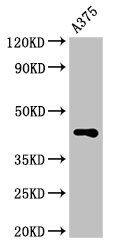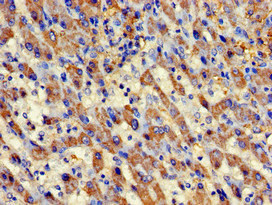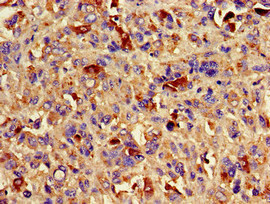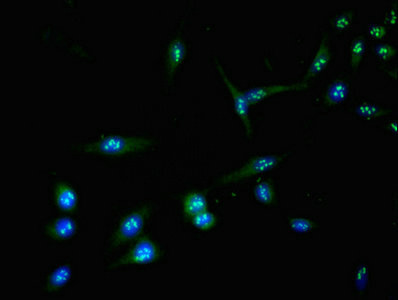Full Product Name
Rabbit anti-Homo sapiens (Human) AURKC Polyclonal antibody
Alternative Names
AURKC antibody; AIE 2 antibody; Aie1 antibody; AIE2 antibody; AIK 3 antibody; AIK3 antibody; ARK 3 antibody; ARK-3 antibody; ARK3 antibody; Aur C antibody; AurC antibody; Aurkc antibody; AURKC_HUMAN antibody; aurora 3 antibody; Aurora C antibody; Aurora kinase C antibody; aurora related kinase 3 antibody; Aurora-related kinase 3 antibody; Aurora/Ipl1 related kinase 3 antibody; Aurora/Ipl1-related kinase 3 antibody; Aurora/Ipl1/Eg2 protein 2 antibody; EC 2.7.11.1 antibody; Serine threonine protein kinase 13 antibody; serine/threonine kinase 13 (aurora/IPL1 like) antibody; serine/threonine protein kinase aurora C antibody; Serine/threonine-protein kinase 13 antibody; Serine/threonine-protein kinase aurora-C antibody; SPGF5 antibody; STK13 antibody
Immunogen
Recombinant Human Aurora kinase C protein (12-143AA)
Immunogen Species
Homo sapiens (Human)
Conjugate
Non-conjugated
The AURKC Antibody (Product code: CSB-PA002460LA01HU) is Non-conjugated. For AURKC Antibody with conjugates, please check the following table.
Available Conjugates
| Conjugate |
Product Code |
Product Name |
Application |
| HRP |
CSB-PA002460LB01HU |
AURKC Antibody, HRP conjugated |
ELISA |
| FITC |
CSB-PA002460LC01HU |
AURKC Antibody, FITC conjugated |
|
| Biotin |
CSB-PA002460LD01HU |
AURKC Antibody, Biotin conjugated |
ELISA |
Purification Method
>95%, Protein G purified
Concentration
It differs from different batches. Please contact us to confirm it.
Buffer
Preservative: 0.03% Proclin 300
Constituents: 50% Glycerol, 0.01M PBS, pH 7.4
Tested Applications
ELISA, WB, IHC, IF
Recommended Dilution
| Application |
Recommended Dilution |
| WB |
1:500-1:5000 |
| IHC |
1:20-1:200 |
| IF |
1:50-1:200 |
Storage
Upon receipt, store at -20°C or -80°C. Avoid repeated freeze.
Lead Time
Basically, we can dispatch the products out in 1-3 working days after receiving your orders. Delivery time maybe differs from different purchasing way or location, please kindly consult your local distributors for specific delivery time.
Usage
For Research Use Only. Not for use in diagnostic or therapeutic procedures.










